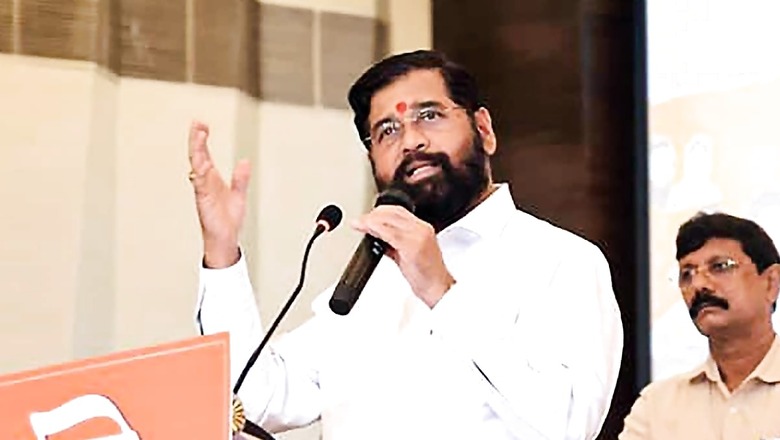
views
In relief for thousands of residents of old buildings stranded in transit accommodations or without proper homes for years, the Maharashtra government has got key state agencies to accelerate the construction of permanent housing solutions.
Among the agencies tasked with spearheading the projects are City And Industrial Development Corporation (CIDCO), Mumbai Metropolitan Region Development Authority (MMRDA), Maharashtra Housing and Area Development Authority (MHADA), Maharashtra Industrial Development Corporation (MIDC), Mahatma Phule Renewable Energy and Infrastructure Technology Limited (MAHAPREIT) and Brihanmumbai Municipal Corporation (BMC).
As part of the plan, the redevelopment of Ramabai Ambedkar Nagar in Ghatkopar has already begun, which will serve as a blueprint for similar initiatives to be rolled out in other regions of Mumbai. For now, the scheme will be limited to Mumbai, where more than 120 redevelopment projects are stuck for various reasons.
Maharashtra Chief Minister (CM) Eknath Shinde said, “These institutions have the resources and expertise to deliver results. We have chosen well-established bodies such as CIDCO and MHADA because of their past successes in urban development. Together, they will ensure that two lakh families receive permanent homes within the next three years.”
‘AGENCIES HAVE THE EXPERTISE TO EXECUTE THE PROJECTS’
According to sources, 60 projects on civic land will be executed by the BMC, while the rest will be managed by other state government agencies.
When News18 spoke to BMC Commissioner Bhushan Gagrani, he said, “It is a very good initiative by the state government, as the selected agencies have the expertise to execute such projects. We will have to put working capital into these Slum Rehabilitation Development projects. We are confident that if these projects are executed perfectly, there is very little chance that government agencies will face losses. Moreover, in these projects, agencies will certainly get a saleable component, although it may not fetch as much profit compared to private developers.”
GURANTEED RENT SUPPORT
One of the key aspects of the plan is the provision of rent support during the transition period, which will be managed by these agencies. Residents temporarily displaced during the redevelopment process will receive financial assistance for rent, ensuring they do not suffer economically while waiting for their permanent homes to be completed.
This approach aims to offer a smooth and sustainable solution for displaced families, addressing a major flaw in previous redevelopment efforts, where residents were often left to fend for themselves during construction delays.
THE CHALLENGES
While the project is making significant strides, the government has also acknowledged certain challenges that need to be addressed. In some areas, slums consist of ‘one-plus-one’ homes, or two-storey structures, which make redevelopment complex.
To tackle this, there are discussions to implement a cluster redevelopment model, similar to the one successfully employed in Thane. This approach groups several homes together for redevelopment, ensuring efficient use of space while accommodating all affected residents.
CLASS 2 LAND, AIRPORT FUNNEL ZONE, MMR
Additionally, financial hurdles that had previously stalled many redevelopment projects are being removed. In the past, converting Class 2 land into Class 1 — an essential step in many redevelopment areas — required developers to pay a 15% premium, making the projects financially unviable. To break this deadlock, the government has reduced the premium from 15% to 5%, to attract more developers and make redevelopment projects economically feasible.
The government is also preparing to introduce guidelines for redevelopment of housing societies located in the airport funnel zone, an area with stringent restrictions due to its proximity to flight paths. This move will provide much-needed clarity and allow redevelopment projects in the area to proceed without further delays.
The government also plans to expand its affordable housing initiative to the wider Mumbai Metropolitan Region (MMR), with 150,000 affordable homes across nine cities. These homes will help address the growing demand for low-cost housing in the region and provide a stable living environment to thousands of families.
















Comments
0 comment